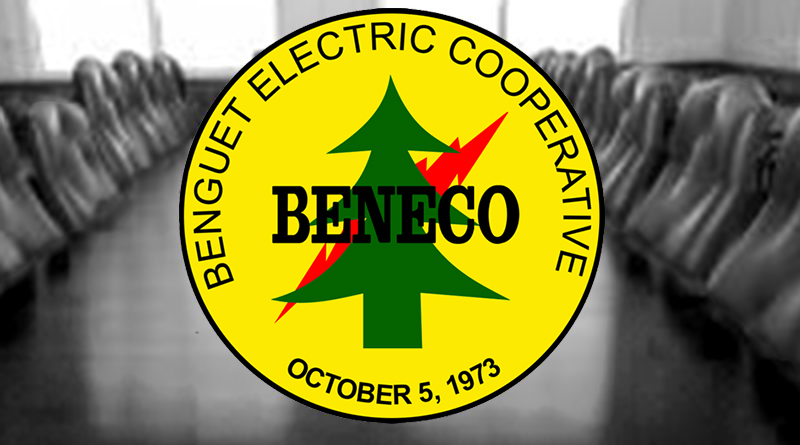Baguio City – The 10 Division of the Court of Appeals (CA) dismissed the petition for certiorari filed by the Aboitiz-owned Hydro Electric Development Corporation (HEDCOR) Kabayan Inc. against the Regional Trial Court (RTC) Branch 63 of La Trinidad and the Benguet Electric Cooperative (BENECO) on the alleged interference committed by the latter for its ongoing free and prior informed consent (FPIC) process for its proposed Kabayan hydro power plants upon mutual agreement of both parties involved in the case.
In a 2-page resolution signed by Associate Justices Ronald Roberto B. Martin, Apolinario D. Broselas, Jr. and Myra V. Garica-Fernadez, the CA took cognizance of the joint motion to dismiss submitted by both Hedcor Kabayan Inc. and Beneco dated September 19, 2018 that prayed for the appealate court to dismiss with prejudice the petition for certiorari and to consider the same as permanently closed and terminated.
“Being prmissed upon amicable settlement, the motion to dismiss petition is granted. CA-G.R. SP No. 154273 is now considered closed and terminated,” the CA resolution promulgated on October 29, 2018 stated.
In their 4-page joint motion to dismiss submitted to the CA, HEDCOR Kabayan Inc. and Beneco stated that both parties met on September 11, 2018 and resolved to end the on-going litigations between them and in furtherance of amity that was established between them, they agreed to create a joint technical working group to explore mutually beneficial undertakings.
Further, both parties have released and waived any and all claims and counter claims they have pleaded against each other, including the petition for certiorari between the parties now pending before the appellate court.
The joint motion to dismiss added that the parties for the purpose of giving a comprehensive efficacy to the foregoing joint motion, agreed that their decision to end litigation shall not only bind them but also their successors, assigns, representatives, and all persons who may have been with them or may have had any participation in the incidents subject matter of the case.
Earlier, Judge Jennifer P. Humiding of RTC Branch 63 denied the petition for the issuance of a writ of preliminary injunction filed by HEDCOR Kabayan Inc. that sought to restrain Beneco from interfering with the company’s FPIC process for its proposed Kabayan hydro projects for lack of merit.
The court in turn denied the motion for reconsideration filed by HEDCOR Kabayan Inc. that sought to reverse the court’s earlier decision on the matter for lack of merit that prompted the aggrieved party to file a petition for certiorari before the CA.
The court was able to establish that the FPIC process of HEDCOR Kayan Inc. for its proposed Kabayan hydro projects was at the field investigation report stage when Beneco allegedly interfered and exerted undue influence on the said process.
While the court found that the rights of the indigenous peoples and indigenous cultural communities were amply protected under the circumstances, it failed to appreciate the urgent and permanent necessity for the issuance of writ to prevent serious damage to HEDCOR.
The court stated that HEDCOR may indeed have a hydro power service contract as the basis of its exclusive right to develop the water resources of Kabayan under its Nalatang 2 project, however, the FPIC process mandated by the Indigenous Peoples Rights Act to guarantee that the rights of the IPs and ICCs over their ancestral domain are protected, too, thus, while the contract may grant the company the exclusive right to develop the water resources of the area covered by its contract, such exclusivity is still subject to a condition, the conduct of an FPIC process to determine HEDCOR’s qualifications to undertake the project.
The RTC claimed that the acts of Beneco complained by HEDCO did not arise in the milieu of the FPIC process since they were acts related to the request and intent of the IP organization to partner with Beneco and that the group had already initiated negotiations with Beneco long before HEDCOR came into the picture or before it was able to secure from the energy department its service contract.
The lower court asserted that the acts of the IP group are outside the realm of the FPIC process to be undertaken by the concerned government agency and not by HEDCOR, more so that the IP group was never impleaded in the said case.
The court pointed out that the acts of Beneco or its joint efforts with the IP group did not categorically disturb, intimidate or much less influence the FPIC process being conducted by the government agency to determine the issuance of certificate pre-condition for the HEDCOR project.
It can be recalled that the IP organization of Kabayan voted against the proposed development of hydro power plants in their ancestral domain by HEDCOR during the assembly organized for the purpose.
By HENT













